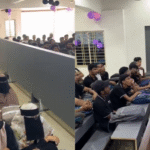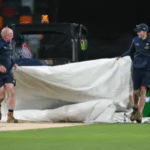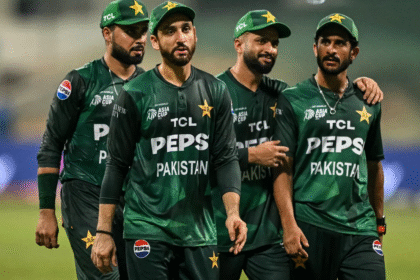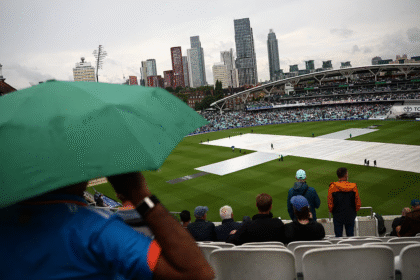Bloodbath in Rio: 64 Killed in Brazil’s Deadliest Anti-Gang Operation — Police Launch 3-Day Crackdown Across 6 Cities
At least 64 people have been killed in Rio de Janeiro during Brazil’s deadliest anti-gang operation to date
At least 64 people, including four police officers, were killed in Rio de Janeiro, in what officials described as one of the most violent anti-narcotics operations in Brazil’s recent history, as well as the deadliest in the city.
The massive raid on Wednesday, launched just days before the city hosts events linked to the upcoming COP30 climate summit, targeted the powerful Comando Vermelho drug-trafficking gang in the Complexo do Alemo and Penha favela complexes.
“We stand firm confronting narco-terrorism,” Castro tweeted about the operation, which he said involved 2,500 security personnel.

He also confirmed 81 arrests as authorities sought to serve 250 arrest and search warrants in an operation targeting alleged drug kingpins and their money laundering operations.
Police released videos showing suspects using drones armed with grenades. The footage also showed armed men fleeing into a forested area near the operation.
Meanwhile, footage on social media showed fire and smoke rising from the two favelas as gunfire rang out.
Suspected gang members blocked roads in northern and southeastern Rio in response to the raid, local media reported. At least 70 buses were commandeered to be used in the blockades, causing significant damage, the city’s bus organisation Rio Onibus said.
After the most intense fighting subsided, personnel from a special operations unit rounded up dozens of shirtless men.
The Rio state government called Tuesday’s operation the largest ever targeting the Comando Vermelho gang.
Human rights groups condemned the bloodshed and demanded accountability. Csar Muoz, Human Rights Watch’s Brazil director, called the violence “a huge tragedy” and “a disaster”. “The public prosecutor’s office must open its own investigations and clarify the circumstances of each death,” Muoz said.

Footage shared on social media showed plumes of smoke and bursts of gunfire over the densely populated neighborhoods. Authorities closed 46 schools, and the nearby Federal University of Rio de Janeiro cancelled evening classes, urging students to stay indoors, according to Associated Press.
Suspected gang members retaliated by blocking major roads in northern and southeastern Rio, seizing at least 50 buses to barricade streets, according to the city’s bus operators’ association, Rio nibus.
Police said Tuesday’s raid followed a year-long investigation into the Comando Vermelho gang. The criminal group, which grew out of Rio’s prisons, has steadily expanded its control in the city’s favelas.
Governor Castro, from the conservative Liberal Party, took aim at President Luiz Incio Lula da Silva’s administration, saying the federal government had failed to support local anti-crime efforts.
In response, Gleisi Hoffmann, a senior Lula aide, defended federal action, citing recent money-laundering crackdowns targeting organized crime networks.
Rio has been the scene of lethal police raids for decades. In March 2005, some 29 people were killed in Rio’s Baixada Fluminense region, while in May 2021, 28 were killed in the Jacarezinho favela.
Police have often conducted large-scale operations against criminal groups ahead of major events in Rio, which hosted the 2016 Olympics, the 2024 G20 summit and the Brics summit in July.
Next week, Rio hosts the C40 global summit of mayors tackling climate change and Prince William’s Earthshot Prize, which will feature celebrities including pop star Kylie Minogue and four-time Formula One world champion Sebastian Vettel.
The programming is part of the run-up to COP30, the UN climate summit held in the Amazon city of Belem from November 10 to November 21.
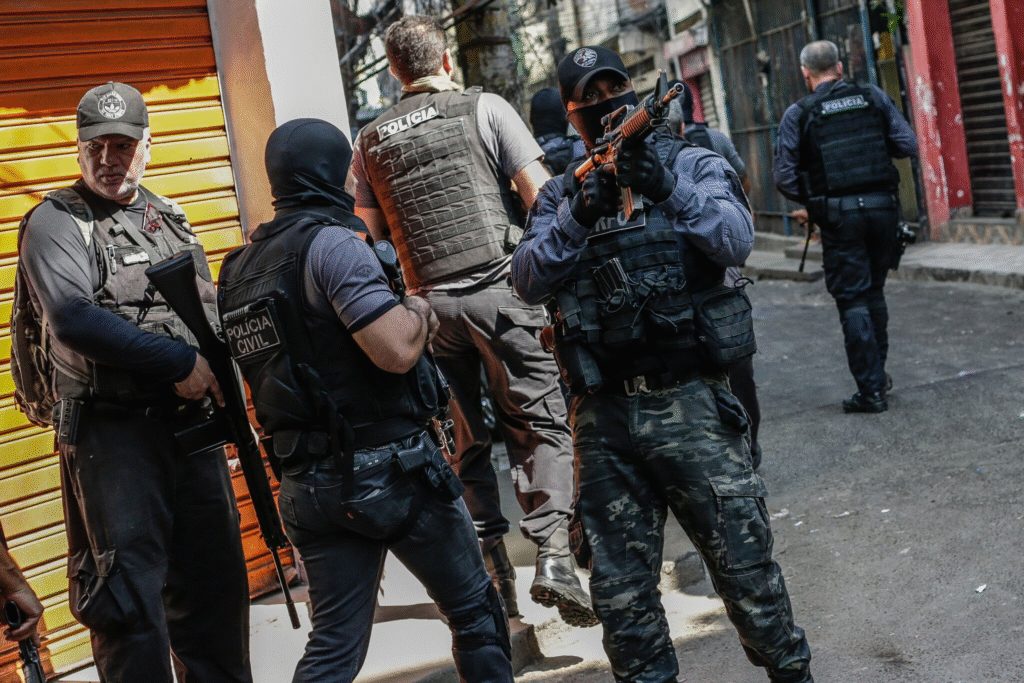
Rio de Janeiro has been plunged into turmoil after a massive police crackdown left at least 64 people dead in what authorities are calling Brazil’s deadliest anti-gang operation to date. The sweeping three-day campaign, conducted across six cities, aimed to dismantle powerful criminal syndicates that have long dominated Rio’s sprawling favelas.
The operation, led by Brazil’s Federal Police in coordination with Rio’s Military Police and state intelligence units, has drawn both praise and outrage — hailed by officials as a decisive strike against organized crime but condemned by human rights groups as an “unprecedented massacre.”
According to police reports, the operation began early Monday and focused on dismantling networks linked to drug trafficking, extortion, and illegal arms trade in Rio’s northern and western districts. Heavily armed officers moved through densely populated areas, supported by helicopters and armored vehicles, to capture or neutralize top gang leaders.
The clashes soon escalated into intense gunfights that lasted several hours each day. By Wednesday night, at least 64 people, including alleged gang members and several civilians, had been confirmed dead. Authorities stated that dozens of weapons, including assault rifles, grenades, and ammunition, were seized during the raids.
Rio’s state security chief, Victor Hugo Lemos, described the operation as “a necessary step toward reclaiming territories held hostage by violent criminal organizations.”
“Our officers faced heavy resistance from gangs armed with military-grade weapons,” Lemos said during a press briefing. “We have dismantled several key drug cells that have terrorized communities for years. This was a decisive blow to organized crime in Rio.”
He added that several wanted fugitives, including local gang commanders, were either arrested or killed during the raids. Police sources said the operation was part of a broader national campaign called “Operation Clean Wave”, aimed at restoring law and order in Brazil’s urban centers ahead of the 2026 local elections.
While officials celebrated the success of the raids, human rights organizations and community leaders expressed alarm over the high death toll.
The Brazilian Human Rights Watch (HRW) called the operation “a bloodbath that demands accountability.” In a statement, HRW accused police forces of using excessive violence and failing to ensure civilian safety.
“Authorities cannot justify mass killings under the guise of security,” said HRW spokesperson Luana Ferreira. “Brazil’s favelas are not war zones — they are home to families, children, and workers who live in constant fear.”
Videos circulating on social media show residents fleeing amid heavy gunfire, with some alleging that police entered homes without warrants and fired indiscriminately. Independent journalists have reported that at least five civilians, including a teenage boy, were among the dead.
The bloodshed has sparked international concern, with the United Nations Office of the High Commissioner for Human Rights (OHCHR) urging Brazilian authorities to launch an independent investigation. The UN emphasized that anti-gang operations must adhere to international standards and prioritize human rights protection.
Brazilian President Luiz Inácio Lula da Silva has called for a detailed report from Rio’s state government, saying that while the fight against organized crime is essential, “it must not come at the cost of innocent lives.”
Opposition leaders, however, have defended the police, arguing that the crackdown was long overdue. “For years, criminals have ruled parts of Rio like their own kingdoms,” said conservative lawmaker Eduardo Paes Neto. “If the government doesn’t act firmly, these gangs will only grow stronger.”
Rio de Janeiro has long struggled with urban violence driven by powerful drug cartels that control large portions of the city’s favelas. Frequent clashes between gangs and police have made Rio one of the most dangerous urban centers in Latin America.
According to Brazil’s Institute for Public Security (ISP), more than 4,000 people were killed in police operations across the country last year — nearly half of them in Rio alone. Critics say these figures point to a culture of excessive force within the police ranks.
Despite recurring operations, the roots of the problem — poverty, unemployment, and lack of education — remain largely unaddressed. Many young people in Rio’s slums are drawn into gangs by promises of quick money and protection.
As Rio begins to recover from three days of intense gunfire, questions remain about the long-term impact of the operation. While police have seized weapons and arrested several suspects, community trust in law enforcement has been further eroded.
Residents in several neighborhoods reported that schools and businesses were shut for days, and public transport was disrupted due to ongoing tensions. Many fear that retaliatory attacks from surviving gang members could follow in the coming weeks.
“Peace cannot come through bloodshed,” said local activist Marcos Oliveira, who lost a relative during the raid. “We need education, jobs, and social reform — not bullets.”



